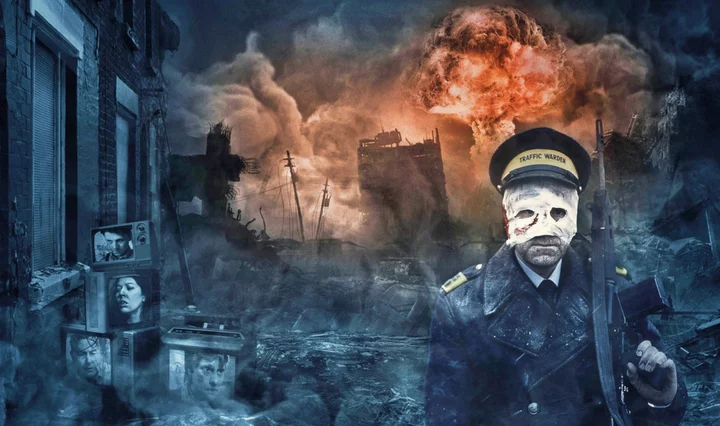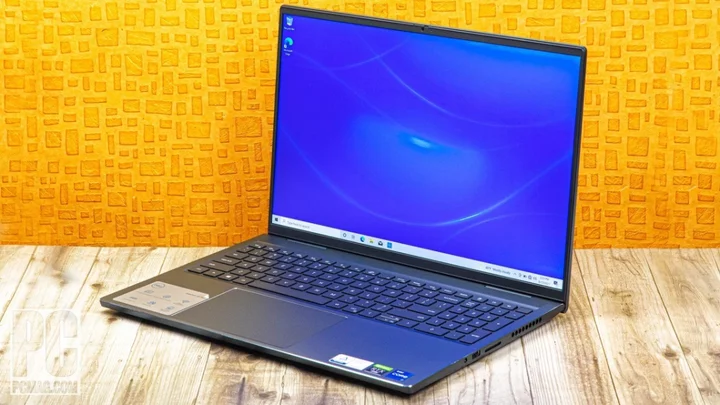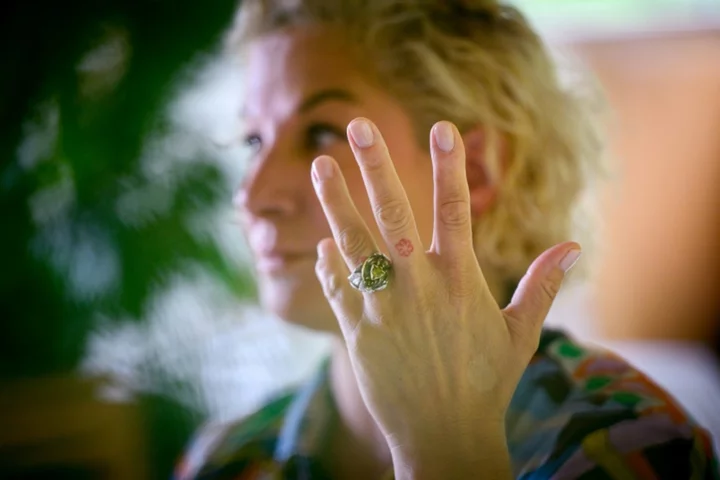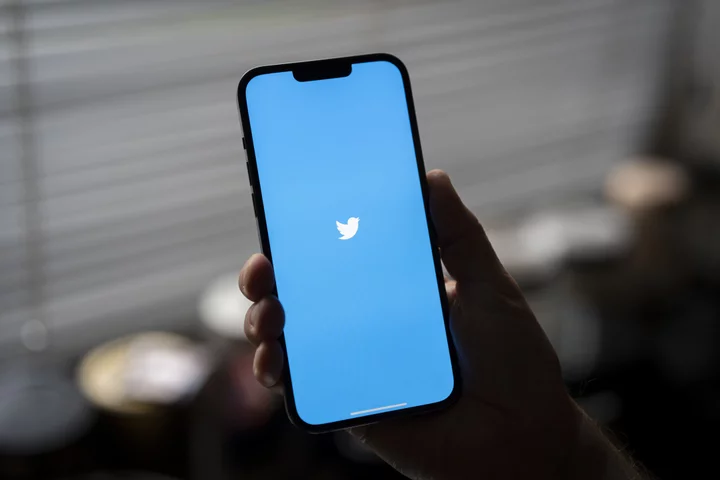Finding a good name for a Twitter rival is harder than it seems. Might Mastodon, one of the earliest rivals, have made more of a dent in Twitter's user numbers if it wasn't an extinct species, or if the name wasn't so easily lampooned by Elon Musk? Would more of us have been curious about Bluesky if it didn't sound so...insubstantial? Twitter is a pretty unbeatable name for a generic social network, it turns out. (Which makes it all the wilder that its creators came up with the name Twitter by accident, after nixing "Twitch" then skipping forward in the dictionary.)
So it's no small deal that Threads, the new Instagram-based social network from Meta, has stitched together a massive following so fast (100 million-plus sign-ups in the first week). Especially given the association many Gen Xer's, myself included, have with the name. For plugged-in Cold War kids like Black Mirror creator Charlie Brooker, the word "Threads" will never fail to spark unsettling memories of air-raid sirens and mushroom clouds over Sheffield.
We're so willing to escape Musk's hellscape, it turns out, we're willing to run into a place that shares its name with a literal hellscape.
For those who haven't felt its blast, Threads is a 1984 BBC movie that has earned a reputation in the last four decades as one of the most truly terrifying films ever made. If it were in the horror genre, you'd say it had a cult following. But that doesn't really apply to a work of art that sears itself into your brain so effectively, you'd be hard-pressed to watch it more than once.
There are no Threads fans, not even the ones who restaged the movie in 2018. There are only Threads survivors.
Threads' grimly realistic depiction of nuclear war made its U.S. predecessor The Day After (1983) look like a Disney movie by comparison. Traumatic enough that the BBC only screened it twice, made on a shoestring budget but researched like crazy, featuring the first ever TV depiction of a nuclear winter, Threads has aged as well as its characters didn't.
That's why the movie seems as relevant in summer 2023 as its namesake. As Russia rattles nuclear sabers over Ukraine (with Belarus now joining in!), and as Christopher Nolan's atomic epic Oppenheimer is primed to explode in theaters, it's time we all knew about this ultimate nuke nightmare.
'Black Mirror' and the bomb
Thanks to Charlie Brooker, you may have recently seen a Threads homage without realizing it. The standout Black Mirror season 6 episode "Demon 79" — spoiler alert if you haven't seen it, but what are you waiting for? — literally ends on a Threads quote.
Look deeper, and "Demon 79" offers multiple Threads easter eggs. TV segments warn vaguely of escalating nuclear tensions, but the Yorkshire-based protagonist flips the channel — mirroring the news and its reception in the homes of Threads' Yorkshire families.
A police inspector is seen on the toilet reading a copy of the Daily Mirror with this front page: "As clashes in Gulf intensify...RUSSIA: NO BACKING DOWN.” Not only is the Persian Gulf where Soviet and U.S. forces first clash in Threads, but one of its characters has to beat a hasty retreat from the bathroom when the first bomb drops. (There are a few scatalogical references in the film, which feel like entirely appropriate responses to the end of the world.)
Brooker has been clear about the impact Threads made in his young life. "During my formative years, mushroom clouds were all the rage," the writer said a decade ago on his comedy commentary series Charlie Brooker's Screenwipe. "I guess if Threads had an overall theme, it was 'oh, shit.'"
So when Brooker became the 14,536,542nd person to join Threads the social network, he announced his move on Twitter with a photo of his 2016 Halloween costume. (Barely a year later, with Donald Trump in the White House threatening to drop "fire and fury" on North Korea, it seemed a horribly prescient choice, and we all hoped Brooker's talent for prediction was not in effect.)
The traffic warden with the bandaged face and the rifle is such an indelible image, it may surprise non-viewers to know he's barely in the film. Nobody even knows which extra was under the bandage. But that's Threads, a movie that resolutely refuses to have heroes or anti-heroes. It's a story about two families brought together by an unplanned pregnancy, until it very much isn't. In its lightning-speed timeframe, from 4 months before the apocalypse to 10 years after, the focus is on a fragile society suddenly frayed to threads.
"In an urban society, everything connects," says a narrator at the opening, over an image of a spider building a web. (Another thing that shouldn't work according to the rules of modern filmmaking but really does in Threads: occasional nature documentary-style narration.) "Our lives are woven together in a fabric. But the connections that make society strong also make it vulnerable."
I thought about that line a lot in the years after I carved a deep scar in my teenage self with multiple viewings of Threads. (A teacher had decided to screen it for us high schoolers — and, glutton for nuclear nightmares that I was at 15, I asked to borrow the VHS.) There's nothing to help us grasp the fragile clockwork of human systems like seeing them obliterated. I return to that line when I think about the long-term effects of climate change, and when I think about the many-headed hydra of social media.
It's hardly the same kind of society or the same kind of destruction, but that's exactly what Twitter was — strong and vulnerable. When Musk's toxic changes (re-platforming and then centering the former users that abused it) dropped on the service, huddled refugees needed something like Threads: an app from the only company with a social graph large enough that it could replicate the connective tissue of a large society as fast as possible.
SEE ALSO: It's not the end of the world... yetAnd Threads? That's something we need too. Even this long after 1989, the year I naively hoped it had been consigned to irrelevancy. President Reagan watched The Day After and was spurred on to seek arms control agreements with the Soviet Union; nobody knows if he also watched Threads. Perhaps if he had, he would have agreed to the surprise proposal of Mikhail Gorbachev at the groundbreaking Reykjavik summit: let's draw down our entire nuclear arsenal to nothing.
Perhaps that could still be done.
That connection, between fears made concrete and action, was the aim of Threads director Mick Jackson, who went on to a successful Hollywood career but still regards this film as the best thing he's ever done. "I tried to put into Threads images that you couldn’t get out of your head,” Jackson told Vice when it was released on Blu-Ray in 2018. "So that when you talked in this abstract language about first strike capability and kilotons, you would also think about those things and that might give you pause."
Indeed, many of Threads' most shocking moments seem tailor-made for the distractible social media era, like GIFs that lodge in your brain. Right down to the freeze-frame ending, which I won't spoil but which is one last gut-punch to our hopes that civilization might survive this worst of catastrophes. "Every generation may need to film its own Threads to ensure it never happens," I wrote when surveying the humanity-destroying threats in our long-term future. Perhaps we can discuss that plan on Threads.









